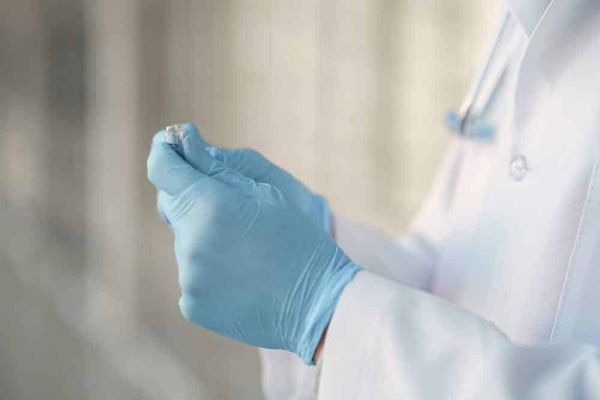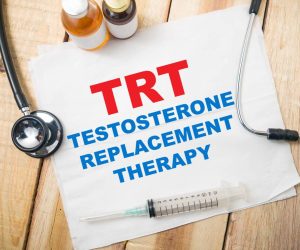Low Testosterone Linked to Hospitalization for COVID

Table of Contents
ToggleThe link between low testosterone and an increased risk of morbidity has been confirmed by scientists. In fact, several studies have demonstrated that low testosterone is associated with an increased risk of death due to COVID-19 complications. This effect may be related to the immune system or other comorbidities associated with low testosterone levels (such as chronic obstructive pulmonary disease). However, more research is needed to determine how these factors interact to develop effective prevention strategies for this deadly virus.
Low testosterone is associated with an increased risk of hospitalization due to COVID-19
A recent study found that men with low testosterone levels were at a greater risk of hospitalization due to COVID-19. The exact relationship between low testosterone and morbidity rates for COVID-19 has yet to be determined, but it’s possible that low testosterone could cause other health issues that lead to more serious illnesses.
Currently, we don’t know exactly how much of an impact being diagnosed with a serious illness like this will have on your life in the long run. However, research suggests that there are ways you can improve your odds: eating well and exercising regularly can help keep you healthy both physically and mentally; getting restful sleep is essential; keeping stress levels down will also help keep your mind clear so you can think more clearly about what actions need to be taken next time around (or make sure nothing else goes wrong!).
The correlation between low testosterone and high morbidity rates has been known for a while
The link is important, but it’s still unclear exactly how low testosterone causes COVID-19 complications. As the research continues to evolve and more studies are done, we may finally find out what causes this complex condition to occur.
Scientists have identified several ways by which low testosterone may increase susceptibility to COVID-19 infection and the severity of symptoms
Scientists have identified several ways by which low testosterone may increase susceptibility to COVID-19 infection and the severity of symptoms.
Low testosterone levels are associated with decreased immunity, increased inflammation, increased risk of comorbidities (co-occurring medical conditions), and decreased energy levels. These factors can make it easier for you to become infected with COVID-19 and become sicker once you get it.
In one study, researchers found that men who had low testosterone were more likely than other men (who didn’t have low T) to develop a cold sore or fever blisters after they were exposed to the herpes simplex virus type 1 (HSV1). The low-T men also had higher rates of recurrent infections compared with their peers who had normal levels of the hormone.
There are currently three possible explanations for this link, two of which are related to the immune system, and the other is related to the presence of comorbidities in most cases of low testosterone
The first explanation is that low testosterone causes a decline in immune function, which may make it harder to fight off infections or other illnesses. The second explanation is that men who have lower levels of testosterone are more likely to be hospitalized due to complications from their illness or because they’re more likely to seek treatment (since they feel sicker). The third reason might be that both COVID and low testosterone share some common risk factors like age and obesity—though this idea hasn’t been studied yet.
The exact relationship between low testosterone and morbidity rates for COVID-19 has yet to be determined
The exact relationship between low testosterone and morbidity rates for COVID-19 has yet to be determined.
It’s unclear what the precise connection is between testosterone levels and hospitalization rates for COVID-19, but there are a few things we do know:
- Low testosterone is associated with increased mortality in older men with heart failure.
- Having high or low levels of testosterone can impact the body’s immune response, which in turn affects the chances of contracting certain diseases.
- There are a number of factors that can affect your risk of getting sick from COVID-19, including how well you eat and exercise (or don’t), whether or not you’re depressed or anxious about your health, where you live geographically (the virus seems more common among certain groups), how many people live in close proximity to one another (COVID-19 spreads easily through direct contact with infected individuals).
Nonetheless, whether there is a causal relationship between low testosterone and COVID-19 complications or not, it can be beneficial for men with low T to seek treatment
While low testosterone levels alone may not cause COVID-19 complications, it is a strong predictor of morbidity. If you have been experiencing symptoms of the disease and are concerned about your health, it is important to talk to your doctor.
If you have low T and need treatment, several options are available. Testosterone replacement therapy (TRT) can be administered through patches, gels, injections, or pellets implanted under the skin. Before beginning a course of TRT, it is recommended that patients receive regular monitoring with blood tests to ensure that their bodies are responding well to treatment.
If you are concerned about how low T might affect your risk of hospitalization from COVID-19, discuss it with your doctor.
If you’re concerned about how low testosterone might affect your risk of hospitalization from COVID-19, talk to your doctor. They can help you decide if you need treatment. If so, they’ll also be able to help you find the best treatment for you.
Hopefully, this article has helped you understand the link between low testosterone and an increased risk of hospitalization due to COVID-19. If you are concerned about how low T might affect your risk of hospitalization from COVID-19, discuss it with your doctor, or you can give Florida Men’s Health Center Plantation a call for any hormonal inquiries you might have.




